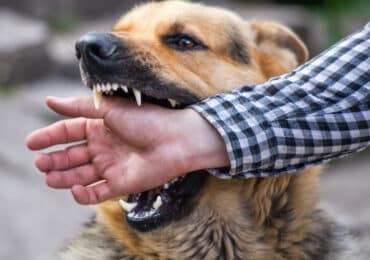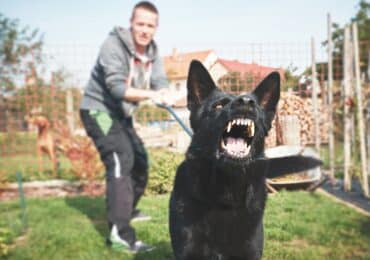Being bitten by a dog can be a stressful, traumatic, and potentially life-altering event. However, many dog bite victims are unsure of their legal rights and responsibilities following such an incident. Likewise, dog owners may have legitimate concerns about their own obligations and liabilities when their pet bites someone. Navigating the aftermath of a dog bite requires an understanding of the applicable laws and proper procedures regarding liability, healthcare, animal control, and prevention of future incidents.

This article shows an overview of the legal recourse and practical responsibilities for both victims and owners following a dog bite. Whether you have been unfortunately bitten or are a conscientious owner whose pet has harmed someone, the information herein aims to educate all parties on their rights and duties so reasonable actions can be taken during this sensitive situation.
What Laws Apply To Dog Bites?
When it comes to dog bites, two legal concepts usually come into play: negligence and strict liability.
- Negligence
Negligence refers to a dog owner’s failure to exercise reasonable care in restraining their dog or taking necessary precautions to prevent bites. In cases where negligence is proven, the owner may be deemed responsible for the victim’s damages. This means they may be required to compensate the victim for medical expenses and other related costs.
To establish negligence, victims may need to show that the owner had a duty of care to prevent harm, breached that duty, and that their breach directly caused the dog bite. For instance, if a dog owner fails to secure their dog in a public area properly and the dog bites someone as a result, the owner may be found negligent.
- Strict Liability
In many jurisdictions, specific statutes are in place that establish strict liability for dog bites. This means that the owner shall be held responsible for any damages caused by their dog’s bite, regardless of whether or not they were negligent. Under strict liability laws, victims generally do not need to prove that the owner was at fault or aware of their dog’s aggressive tendencies.
However, there are exceptions to strict liability. For instance, if a person was trespassing on private property, which resulted in getting bitten by a dog, the owner won’t be held liable in certain jurisdictions. Additionally, if a person intentionally provokes a dog or assumes the risk of being bitten (for example, by engaging in a dangerous activity involving the dog), the owner may also be exempt from liability.

Ultimately, dog bite laws can vary between jurisdictions, so victims should consult local laws or seek legal advice to understand the specific regulations that apply in their area.
Suppose you’ve been a victim of a dog bite and are unsure what legal concept applies to your situation. In that case, it’s recommended to seek guidance from your personal injury attorney Lawrenceville Ga or other local attorneys in your area who are experienced in handling dog bite cases. Understanding the legal concepts of negligence and strict liability can help victims assess their rights and determine the most appropriate legal recourse after a dog bite incident.
Seeking Compensation for Injuries and Damages
If you have suffered injuries due to a dog bite, you may be qualified for compensation for medical expenses and other damages. To boost your chances of acquiring fair compensation, consider the following steps:
- Seek Immediate Medical Attention
After a dog bite, it’s crucial to prioritize your health and well-being. Seeking prompt medical attention not only ensures proper care for your injuries but also establishes a record of your medical treatment, which can serve as evidence of the extent of your damages.
- Document the Incident
To support your claim for compensation, document all the details of the dog bite incident. Take clear and detailed photographs of your injuries, ensuring you capture both the immediate aftermath and any progression over time. This visual evidence can be crucial in establishing the severity and impact of the dog bite.
You must also take photos of the site where the incident occurred, including any circumstances or hazards that may have added complications to the incident (e.g., broken fences, lack of warning signs, etc.). If you notice any signs of negligence or inadequate pet containment, such as a lack of proper restraints or evidence of previous incidents, take photographs or make detailed notes on them as well.
- Gather Witness Statements
If there were witnesses present during the dog bite incident, it’s essential to gather their contact information and obtain written statements detailing what they saw. Witness testimony can provide valuable support for your claim and strengthen your case.
- Preserve Evidence
Alongside documenting the incident, preserving any physical evidence supporting your claim for compensation is important. This may include torn clothing, damaged personal belongings, or any other items that may demonstrate the severity or impact of the dog bite.
- Consult with an Attorney
To increase your chances of receiving better compensation, it’s highly advisable to consult with a personal injury attorney. An experienced lawyer can guide you through the legal process, assess the strength of your claim, and represent your interests if legal action becomes necessary. The expertise and guidance of a personal injury attorney can be invaluable in navigating the complexities of dog bite claims and ensuring that your rights are protected throughout the process.
Why Is It Important To Report Dog Bites?
Reporting a dog bite case to the appropriate authorities is crucial to protect yourself and other potential victims and hold negligent owners accountable. In most cases, you should report the incident to the local animal control or health department. By reporting the incident, you help create a record and establish a pattern if the dog has a history of aggression. This information can be vital if legal action is necessary or if the dog poses a threat to public safety.
Dog Owner Responsibilities and Precautions
As a dog owner, it is essential to take appropriate precautions to prevent your pet from causing harm to others. Here are some key responsibilities every dog owner should consider:
- Provide Proper Training
Dog owners are responsible for providing proper training to their pets. Obedience training ensures that dogs behave appropriately around people and other animals. By teaching them basic commands and socializing them from an early age, owners can help prevent aggressive behavior.
- Socialize your Dog
Expose your dog to various settings and situations to minimize fear or aggression towards strangers or other animals. Furthermore, responsible supervision is essential when your dog interacts with others, whether it’s with people or other animals. Be aware of your pet’s behavior and intervene if necessary to prevent aggressive or dangerous situations from escalating.
- Secure Your Property
Dog owners should ensure their property is adequately fenced and secure to prevent their dogs from escaping and potentially causing harm. Regularly inspect fences for any damages or weaknesses that may allow the dog to escape and address them promptly.
- Use Leashes and Muzzles
Responsible dog owners should always keep their dogs on a leash when in public areas. Leashing provides control over the dog’s movements and helps prevent potential incidents or bites. Additionally, in cases where a dog has shown aggression in the past or when required by local regulations, using a muzzle can provide an extra layer of safety.
- Follow Local Laws
Familiarize yourself with the local laws and regulations specific to dog ownership in your area. This includes understanding leash laws, licensing requirements, and leash-free areas. Compliance with these regulations helps create a safe environment for both your dog and others.
By fulfilling these responsibilities and taking necessary precautions, dog owners can significantly reduce the risk of their dogs causing harm to others. Responsible ownership ensures the community’s safety and helps foster positive relationships between dogs and humans.
The Bottom Line
Dog bites can have serious consequences, both for victims and dog owners. Understanding the legal recourse open to victims and the responsibilities that dog owners bear is crucial for navigating through such situations. Remember, by taking appropriate action, you can protect your rights and contribute to a safer community for everyone.

